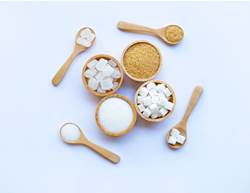Ever used a bag of peas or ice pack on an injury? Then you already know a bit about the power of cold therapy. Ice is a go-to for first aid, decreasing inflammation and swelling. But can it also help with stress and anxiety?
As it turns out, the answer is yes, says Psychologist Dr Emmanuella Noble: cold therapy can kick off a feeling of calm. “When we are stressed, our sympathetic nervous system is activated (our fight-flight-freeze response) more than our parasympathetic nervous system (which relaxes the body).”
These two systems need to be in balance for us to feel calm – and here’s where the vagus nerve, an important part of the parasympathetic nervous system, plays a part, says Dr Noble. “The research has found that when we expose our bodies to cold, the vagus nerve is stimulated – and as our body adjusts to the cold, it can reduce the flight/flight/freeze response and increase the parasympathetic nervous system activity, leaving us feeling calmer.”
But we don’t need expensive cryotherapy pods to tap into this benefit, she says. “We know that holding ice in our hands for a short period, running our hands or wrists under cold water, splashing water on our face or even having a cold shower can do the trick.”
Ready to get your chill on? We take a look at the potential health benefits of different cold therapies.

Cold showers
It’s been a marathon day, you’re stressed, tired and can’t wait to jump into a long, hot shower. But hold up: even if it’s the last thing on your mind (or what you might want!), some experts are now claiming a cold shower is better for us. But how?
Cold showers may boost the immune system but it’s not yet clear how. One large study reports that people who regularly took a cold shower were less likely to take time off work due to sickness than those who took a warm shower. Experts say more studies are needed to really determine the reasons for this.
Hot showers are relaxing, but can also have a negative effect on your skin. The hotter and longer your shower, the more oil and moisture is removed from your skin. So, even if you can’t stomach a cold shower, a lukewarm shower will be better for your skin.

Cold water swimming
Cold water swimmers all know the natural high of that rush of endorphins post-swim. This experience feels like it reduces stress and boosts mood, but it hasn’t been widely studied yet.
So, are there any proven benefits? Researchers from Cambridge University discovered that cold-water swimming may protect the brain from degenerative diseases like dementia.
In the study, scientists found higher levels of RBM3 in the blood of cold water swimmers. This protein is linked to the regrowth of brain synapses, which are destroyed in dementia. Animal studies have shown this protein could help delay the onset of dementia.
Cold water swimming also has the usual benefits of exercise and being in the great outdoors. Swimming is a low-impact exercise that keeps your heart rate up, and improves muscle strength and cardiovascular fitness. And like most exercise, it can also boost your mood.
There are risks to cold water swimming, though. Before you start jumping into freezing water, check in with your GP first to make sure that all is in working order, just like you should do with any new exercise.
View this post on Instagram
Ice baths
If sitting around in a bath filled with ice sounds like torture to you, you’re not alone! But some people believe this is a sure-fire way to improve immunity and boost the brain.
Ice baths have grown in popularity in recent years, in part thanks to ‘ice man’ Wim Hof. His method involves breathing exercises (including hyperventilating), cold therapy and meditation. But the claims that ice baths reduce inflammation and improve athletic performance fall flat. There’s simply not enough evidence.
In fact, Wim Hof’s extreme methods can actually be quite dangerous. Meditation alone however, may reduce stress, anxiety and depression.

Cryotherapy
Cryotherapy just means cold therapy but is often used to describe the more extreme versions of this therapy, like submersing yourself in a cryotherapy chamber.
Some spas offer whole-body cryotherapy, where you stand in a specially designed tank or chamber for short periods of time. The temperature can be as low as a very chilly -130 degrees Celsius.
Health claims include anti-ageing benefits, lower ‘toxins’, boosting metabolism and improved sleep. Again, there’s not much evidence to show it has any benefits. There is evidence of the risks though: that it can give you frostbite or a cold-induced rash, particularly if you stay in too long. And if you have blood circulation problems, it’s probably not for you.
The bottom line?
The bottom line is that cold therapy can be beneficial – but use caution and common sense, since many of the health claims of various cold therapies just don’t hold water. Stick to Dr Emmanuela’s simple ways of getting the benefits of cold therapy, without incurring the cost of cryotherapy chambers or the shock of an ice bath.
Looking for more ways to de-stress?
Join us at the free Prevention Australian Wellness Weekend, 16–17 September at Fernwood Parramatta. You can also register online to stream the event from wherever you are. Over the weekend we’ll be offering fitness classes and expert talks from leading health figures like Dr Emanuella Noble on reducing stress.
“We all need to look after ourselves, since stress and anxiety can pop up more than we would like,” says Dr Noble. “I’m hoping the Wellness Weekend will provide women with some extra tips on how to de-stress and reduce anxiety, and leave them feeling just a little more rejuvenated!”
Spaces are limited, so ensure your spot by registering here. If you can't make it to Sydney, you can claim a free 2-day pass to use that weekend at any Fernwood Fitness centre nationally and build your own wellness weekend from the classes on offer at your local club. Claim your pass here.









